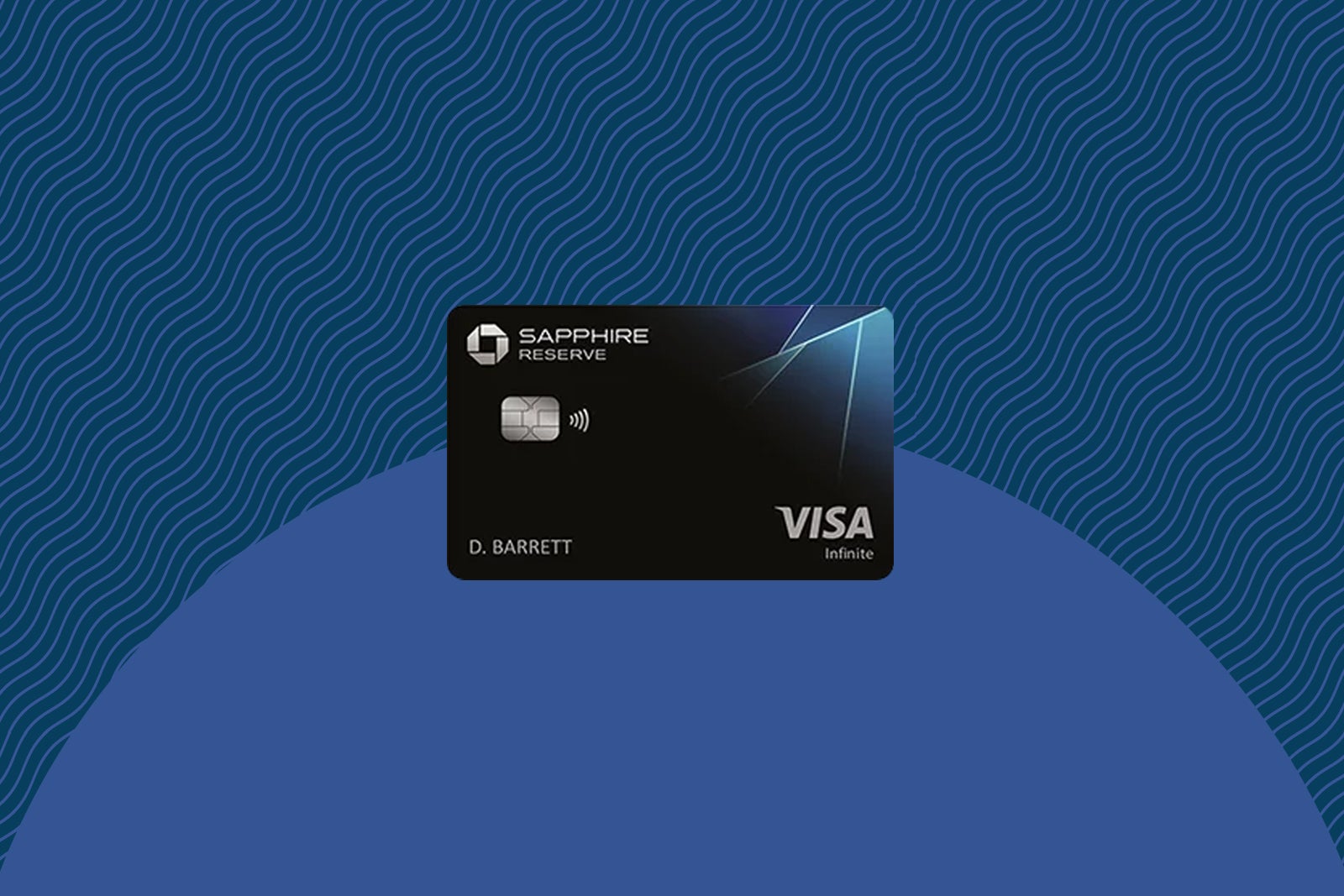Unless you’re new to the points and miles game, you’re probably all too familiar with the fact that those “free” award flights — while steeply discounted thanks to points, miles and transfer bonuses — usually do cost something.
Although there are ways to cut them down, you’ll almost always face the unfortunate addition of taxes and fees. These can range from $5.60 to upward of $800 one-way for some aspirational awards.
When it comes to paying these fees, the best credit card for airfare purchases isn’t always the best option. Unlike cash tickets, there’s a more important factor to consider than just how many extra points you’ll earn: travel protections.
Coverages such as baggage and trip delay reimbursement can be hugely valuable, and some card policies stand out more than others.
With all that in mind, here’s a rundown of the best credit cards for paying taxes and fees on award tickets.
Best cards for paying taxes and fees on award tickets and travel protections
| Card | Bonus for Airfare Purchases / Return* |
Protection Notes | Annual Fee |
|---|---|---|---|
| Chase Sapphire Reserve |
|
Offers the highest monetary maximums of coverage for trip delay, lost luggage, rental car and travel accident insurance, overall best protections all-around. | $550 |
| Chase Sapphire Preferred |
|
Weaker across the board than the Chase Sapphire Reserve in trip delay and purchase protection coverage, but good enough for most situations. | $95 |
| The Platinum Card from American Express |
|
Strong protections, does require that you book round-trip travel. | $695 (see rates and fees) |
| Capital One Venture X Rewards Credit Card |
|
Lower trip cancellation/interruption coverage than Chase Sapphire Reserve. | $395 |
| Ink Business Preferred Credit Card |
|
Weaker trip delay and lost baggage insurance than the Chase Sapphire Reserve, but good enough for most situations. | $95 |
*Return is an estimated value based on TPG’s April 2025 valuations and not the card issuer.
On airfare purchased directly with the airline or through American Express Travel (up to $500,000 each calendar year, then 1 point per dollar).
Chase Sapphire Reserve
Welcome bonus: Earn 60,000 bonus points after spending $5,000 in the first three months from account opening.
Annual fee: $550.
Daily Newsletter
Reward your inbox with the TPG Daily newsletter
Join over 700,000 readers for breaking news, in-depth guides and exclusive deals from TPG’s experts
Rewards: Earn 5 points per dollar spent on Lyft rides (through Sept. 2027), 3 points per dollar spent on travel (excluding the annual $300 travel credit), dining at restaurants and 1 point per dollar spent on everything else.
Analysis: The Sapphire Reserve offers the most comprehensive travel protections. By paying for at least a portion of your ticket with this card, you’ll be covered by a plethora of protections, including baggage delay, lost/damaged baggage, trip delay reimbursement, trip cancellation and interruption protection, medical evacuation benefit, travel accident insurance and emergency medical and dental benefit.
Of these, the most important benefits are trip delay reimbursement, which provides up to $500 per covered ticket if you’re delayed more than 6 hours or require an overnight stay, and baggage delay protection, which provides up to $100 reimbursed per day for up to 5 days if your baggage is delayed more than 6 hours.
Other benefits include an annual $300 travel statement credit, a Global Entry/TSA PreCheck application fee credit and a Priority Pass Select membership that includes guests. You’ll also receive a complimentary Door Dash DashPass membership (activate by Dec. 31, 2027) and a $10 monthly Lyft credit (through Sept. 2027).
For more information on the Chase Sapphire Reserve, check out the following guides:
Apply here: Chase Sapphire Reserve
Chase Sapphire Preferred Card
Welcome bonus: Earn 100,000 bonus points after spending $5,000 on purchases in the first three months from account opening.
Annual fee: $95.
Rewards: Earn 5 points per dollar spent on all travel purchased through Chase Travel, 3 points per dollar spent on dining, including eligible delivery services, takeout and dining out, 3 points per dollar spent on select streaming services, 3 points per dollar spent on online grocery purchases (excluding Target®, Walmart® and wholesale clubs), 2 points per dollar spent on all other travel and 1 point per dollar spent on all other purchases.
Analysis: The Chase Sapphire Preferred is ideal for occasional travelers looking to get a decent return on their travel and dining purchases. It provides similar travel protections as Chase’s Ink Business Preferred, including trip and baggage delay protection, and has the same modest $95 annual fee.
With this card, you’ll earn 5 Chase Ultimate Rewards points per dollar spent when you book travel via Chase Travel and 2 Ultimate Rewards points per dollar spent on other travel and dining purchases. You’ll have the peace of mind knowing you’re insured and still earn a fair amount of bonus points on any taxes and fees.
For more information on the Chase Sapphire Preferred, check out the following guides:
Apply here: Chase Sapphire Preferred
The Platinum Card from American Express
Welcome bonus: Earn 80,000 Membership Rewards points after spending $8,000 on purchases in the first six months of cardmembership. You can also check to see if you’re targeted for a higher welcome bonus through the CardMatch tool.
Annual fee: $695 (see rates and fees).
Rewards: Earn 5 points per dollar spent on airfare purchased directly with an airline or through AmexTravel.com (up to $500,000 per calendar year, then 1 point per dollar).
Analysis: The Platinum Card from American Express (including most varieties of the card) is the next best option for paying award taxes and fees. The protections are a bit more restrictive than those offered by the Chase Sapphire Reserve.
The Amex Platinum’s trip delay insurance* also kicks in when you’re delayed by six or more hours, but it’s capped at two claims per eligible card per 12-month period and doesn’t cover delays that are less than six hours. The benefit is also a bit more restrictive in that it requires round-trip travel, all of which must be paid for with your card (paying taxes and fees on award tickets or Pay with Points tickets are covered).
Note that a combination of one-way tickets would qualify as round-trip travel for the purposes of Amex’s insurance coverage if you eventually end up in your departure city. The Amex Platinum also offers lost, stolen or damaged baggage coverage** when you use your eligible card to pay for your travel costs.
*Eligibility and Benefit level varies by Card. Terms, Conditions and Limitations Apply. Please visit americanexpress.com/benefitsguide for more details. Underwritten by New Hampshire Insurance Company, an AIG Company.
**Eligibility and Benefit level varies by Card. Terms, Conditions and Limitations Apply. Please visit americanexpress.com/benefitsguide for more details. Underwritten by AMEX Assurance Company.
Related: Comparing built-in travel insurance with the Chase Sapphire Reserve and Amex Platinum
The card offers several other benefits to enhance your travel experience, such as a $200 airline fee statement credit, Global Entry/TSA PreCheck application fee credit ($120 every 4 years for Global Entry and up to $85 every 4.5 years for TSA PreCheck), lounge access, automatic Gold status with Hilton and Gold Elite status with Marriott and up to $200 in Uber Cash annually (valid on U.S. purchases and you can redeem with any Amex card after adding your Amex Plat to your Uber account). Enrollment is required for select benefits.
For more information on The Platinum Card From American Express, check out the following guides:
Apply here: Amex Platinum
Capital One Venture X Rewards Credit Card
Welcome bonus: Earn 75,000 bonus points after spending $4,000 on purchases in the first three months from account opening.
Annual fee: $395.
Rewards: Earn 2 miles per dollar spent on all purchases.
Analysis: If you’re looking to earn a steady stream of transferable points and get decent travel protections, the Venture X is a good choice. It comes with a lower annual fee than its premium competitors and offers trip cancellation and interruption protections, primary rental car coverage, reimbursement for lost luggage and trip delay reimbursement.
Overall the card has a generous authorized user policy, allowing up to four additional users without a fee. This comes in handy as the card’s Priority Pass lounge membership and Capital One Lounge access are extended to authorized users. Best of all? They can bring in up to two guests of their own as well.
Related: Why you should add authorized users on the Capital One Venture X
In addition, Venture X offers cardholders a $300 annual travel credit, though this credit is limited for bookings through Capital One Travel.
For more information on the Capital One Venture X, check out the following guides:
Learn more: Capital One Venture X
Ink Business Preferred Credit Card
Welcome bonus: Earn 90,000 bonus points after spending $8,000 on purchases in the first three months from account opening.
Annual fee: $95.
Rewards: Earn 3 points per dollar on the first $150,000 spent each cardmember year on travel, shipping purchases, internet, cable and phone services and advertising purchases made with social media sites and search engines.
Analysis: If you’re a business owner, you can get strong travel protections with the Ink Business Preferred, and they don’t require the purpose of the trip to be business to qualify. The Business Preferred offers many of the same benefits as the Chase Sapphire Reserve but at a much lower price point in exchange for less coverage. For instance, the card offers trip delay reimbursement, but only for delays that are 12 hours or more or require an overnight stay.
What’s unique about this card is that although it has a significantly lower annual fee than the Chase Sapphire Reserve, it offers the same travel earning rate of 3 Chase Ultimate Rewards points per dollar spent on airfare and everything else that Chase includes in its travel classification.
For more information on the Ink Business Preferred Credit Card, check out the following guides:
Apply here: Ink Business Preferred
Bottom line
At first glance, it may seem like the Amex Platinum would be the obvious choice as it offers 5 points per dollar on all airfare purchased through Amex Travel (up to $500,000 each calendar year, then 1 point per dollar), topping all of the other cards in this list. While the card does offer some major trip protections, as you can see, it still is a bit restrictive compared to the Chase Sapphire Reserve.
In most cases, the taxes and fees on these awards are so cheap that it’s worth forgoing the couple extra dollars in points you might get with another card to focus on all the extra insurance features that could potentially save you thousands if something goes wrong. So in this case, don’t worry about losing a few extra points — instead, buy yourself peace of mind with top travel protections just by putting a few dollars on one of these top cards.
For Capital One products listed on this page, some of the benefits may be provided by Visa® or Mastercard® and may vary by product. See the respective Guide to Benefits for details, as terms and exclusions apply.
For rates and fees of the Amex Platinum, click here.






